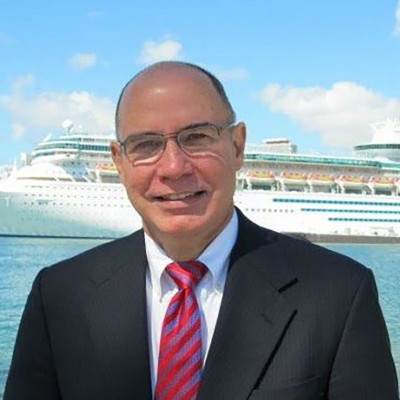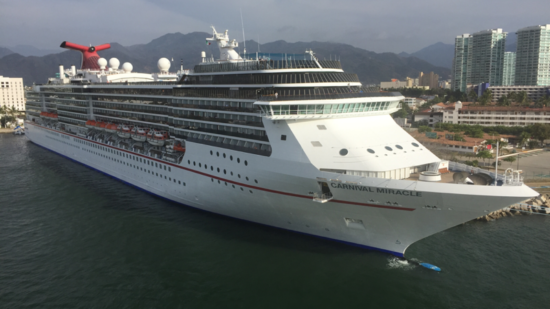A jury in the case of Jane Doe v. Carnival Corporation d/b/a Carnival Cruise Line case number 19-24766, pending in federal court for the Southern District of Florida, returned a verdict in the amount of $10,200,000 on July 18, 2022 for a passenger who was raped by a crew member on the Carnival Miracle.
Facts Alleged By Jane Doe
The salient facts are contained in part in a decision by a federal magistrate who ruled on various pre-trial motions filed by the parties and reported in Doe v. Carnival Corporation 2021 WL 7540787. In the pertinent parts, the decision states:
“Jane Doe was a passenger onboard Carnival’s vessel, Miracle, and in the early hours of December 2, 2018, she alleges that Fredy Anggara, a Carnival crewmember, raped her in a storage closet.”
The complaint (lawsuit) which Jane Doe’s lawyer filed further alleges additional details, which include:
The incident occurred on “December 1, 2018;”
This was the “first cruise” for Jane Doe, a resident of the state of Washington;
“On the last night of the subject cruise, Jane Doe went up a stairwell. At the top was a CARNIVAL employee (see photo produced in discovery);

Once Jane Doe reached the top of the stairs, the subject employee lured Jane Doe into a (maintenance) closet. He went inside the closet with her, locked the door, raped her, and ejaculated on her;
Thereafter he unlocked the closet door and let Jane Doe leave;
Jane Doe immediately rushed away towards her room. The assailant caught up to her and asked her to allow him back in her room. Jane Doe declined his request;
Once Jane Doe reached her room, she burst into tears and told her friend what had just happened;
Jane Doe and her friend went to find help and report what had happened;
Jane Doe started hyperventilating and having panic attacks;
Jane Doe located employees of Defendant to report the crime;
The cruise’s staff members placed Jane Doe in a wheelchair and took her to the ship’s medical facility where staff utilized a rape kit on her and gave her medications to consume in order to fight sexually transmitted diseases she may have obtained during the rape;
Jane Doe was subjected to numerous episodes of humiliation following the medical examination where she had to walk through dozens of passengers who were waiting to disembark the ship. They were ogling her as she passed through them in just a t-shirt as she was not provided any fresh clothes to wear; and
Following the cruise, Jane Doe followed up with CARNIVAL to see if the subject employee had been fired, if any disciplinary action was taken, and/or if he was arrested. CARNIVAL did not respond.”
Carnival’s Defense
During discovery, Carnival responded to the rape by claiming through its corporate representative Suzie Vasquez (a lawyer) that on Carnival cruise ships allegedly “sexual assaults are actually very, very rare . . .”
Cruise Expert – Dr. Ross Klein
Prior to trial, Carnival tried to prohibit notable cruise expert Dr. Ross Klein, who is the author of the popular CruiseJunkie web site, to testify regarding the frequency of rapes aboard Carnival cruise ships. Dr. Klein has previously testified as an expert before both houses of Congress regarding the issues of crime on cruise ships. His opinions are attached. Jane Doe’s counsel sought to elicit testimony from Dr. Klein that Carnival had notice that Mr. Anggara, the Carnival assailant, was likely to assault passengers. Carnival tried to block Dr. Klein’s testimony that:
- The cruise industry as a whole, and Carnival Cruise Line in particular, has an awareness of the problem of rapes, sexual assaults, and sex-related incidents on cruise ships, including the incidence of rape, sexual assaults, and sex-related incidents on Carnival cruise ships.
- Carnival Cruise Line failed in using available data to conduct a social epidemiological analysis of crimes on its ships with the goal of targeted and specific strategies for preventing rape, sexual assaults, and sex-related incidents.
- Guests are given an elevated sense of safety by promotional material for Carnival Cruise Lines cruises, and by publication of crime statistics for rape and sexual assault on its website.
- The sexual assault of Jane Doe was to a degree foreseeable given the cruise line’s knowledge about past sex-related incidents, about use of alcohol onboard Carnival ships, and its failure to implement reasonable initiatives to address the problem of rape, sexual assault, and sex-related incidents onboard Carnival ships.
In an order denying Carnival’s motion in its entirety, the federal magistrate ruled that Dr. Klein is qualified, his methodology is reliable, and his testimony is helpful to the jury.
Counsel for Jane Doe filed a motion seeking sanctions against Carnival for what he alleged was the intentional misconduct of the defense counsel for Carnival and the cruise line’s corporate representative during the trial (see exhibit 303).
Rape Cases Against Carnival Cruise Line
In the year before COVID-19 crippled the cruise industry, there were over 100 sexual assaults on cruise ships, according to DOT cruise crime statistics which breaks down as follows:
- Carnival Cruise Line: 43 sexual assault victims (37 passengers).
- Royal Caribbean: 31 sexual victims (20 passengers).
I attended a hearing in 2007 before Congress regarding cruise ship crime where a senior FBI official testified that only 7% of sexual assaults on cruise ships are prosecuted in federal court.
This poor prosecution rate is because of the historic reluctance of the FBI to become involved in sex crimes at sea, the tendency of the cruse industry to sweep the crimes under the rug, and the inadvertent or intentional destruction of evidence on cruise ships.
Carnival Cruise Line Leads Cruise Industry with the Most Sexual Assaults
The U.S. Congress has studied the problems of rape aboard cruise ships. The cruise industry’s trade organization, CLIA, argued that per capita cruise ship crime rates should be based on the total number of people cruising in any year (around 30,000,000 cruised this year) rather than the average number of people populating cruise ships on any given day. By analogy, the per capita crime statistics for U.S. cities are calculated based on the number of residents in a city. Tourists who visit the city during the year are obviously not counted as residents. Imagine how the crime statistics for New York City would be diluted if instead of calculating crime rates based on the number of residents in the city (approximately 8 million), this number was inflated to include each of the more than 60 million people who visit the city annually.
Congress rejected CLIA’s argument and concluded that per capita cruise crime statistics should be calculated based on the average number of passengers sailing at a particular time, not on the annual number of passengers.
Using Congress’ methodology to determine sexual assault rate results in a per capita rate for Carnival  Cruise Line of nearly 40 (39.6) per 100,000. This number is calculated by taking the number of sexual assaults on Carnival ships reported to the FBI in the last 12 months of 2019 (43), and dividing it by the total number of people on Carnival’s fleet of ships (around 75,000 passengers and approximately 33,500 crew members for a total of 108,500).
Cruise Line of nearly 40 (39.6) per 100,000. This number is calculated by taking the number of sexual assaults on Carnival ships reported to the FBI in the last 12 months of 2019 (43), and dividing it by the total number of people on Carnival’s fleet of ships (around 75,000 passengers and approximately 33,500 crew members for a total of 108,500).
The per capita rate of sexual assaults on Carnival ships of 40 per 100,000 is significant. (Please note, this is my opinion based on the data which I have reviewed; it is not necessarily the opinion of Dr. Klein). It is a higher per capita rate than California, New York, New Jersey, North Carolina and Georgia (and over a dozen other states). The rate on Carnival ships is higher than the average per capita rape rate in the United States of around 27 of 100,000.
Jane Doe’s Counsel – Daniel Courtney
Jane Doe is represented by Miami lawyer Daniel Cortney. This is a significant verdict which demonstrates the seriousness of the case and the victim’s injuries. Congratulations to Mr. Courtney and his staff for their excellent work on this case.
Have a comment or question? Please leave one below or join the discussion on our Facebook page.
July 23, 2022 Update: The Washington Post covered the trial and published an article titled Carnival Cruise Line owes rape victim $10 million, jury says. The newspaper writes:
“The lawsuit claims Carnival was liable for the rape because it failed to monitor dark, public areas of the ship where women could be vulnerable to assaults. It says the company should have exercised a level of reasonable care for guests because “on board its cruise ships there have been numerous assaults, batteries, sexual assaults and batteries, rapes, and attacks perpetrated by crew on passengers.”
In court documents responding to questions from Carnival Corp.’s representation, the plaintiff described how the alleged assault changed her life.
In statistics kept by the Department of Transportation showing allegations of criminal activity on ships that embark and disembark passengers in the United States, sexual assault is the top offense. There were 82 allegations in 2018 and 101 in 2019. The pandemic forced an industry-wide halt to cruise sailings in March 2020, and the department has not updated the reports since cruise ships started sailing again.”
Carnival PR department was quoted in the article as saying that the rape was allegedly a “consensual sexual encounter” which was “consistent with an investigation by the FBI that concluded the encounter was consensual.” The irony is that the FBI, which admitted in testimony before Congress that rapes alleged to have occurred on cruise ships be criminally prosecuted less than 10% of the time, never prepares reports claiming that rape was consensual as Carnival falsely implied. Moreover, the trial court ruled before trial that the FBI report constituted inadmissible hearsay.
The trial court ruled because that the FBI report constitutes inadmissible hearsay (see docket no. 233), any determinations and statements made in those reports – including the FBI’s conclusions regarding the rape at issue in this case – “will not be presented to the jury or admitted into evidence at trial.” As such, Carnival through its employees and lawyers could not mention any conclusions reached by the FBI on the basis that the file constituted hearsay.
Counsel for Jane Doe filed a motion seeking sanctions against Carnival during trial for what he alleged was the intentional misconduct of the defense counsel for Carnival and the cruise line’s corporate representative during the trial by implying that the FBI, which rarely arrest rapists on cruise ships, declined to recommend prosecution based on an alleged conclusion that the conduct was consensual. (see docket no. 303).
It is outrageous for Carnival to now issue a statement which the trial court prohibited.
After practicing law for 39 years. I have never seen a corporate defendant like Carnival Corporation issue a public statement which expressly violates a pre-trial ruling by a trial court like this.
Image credit: Carnival Miracle – Master0Garfield – CC BY-SA 4.0 commons / wikimedia (top); CRUISEMAPPER (bottom).

